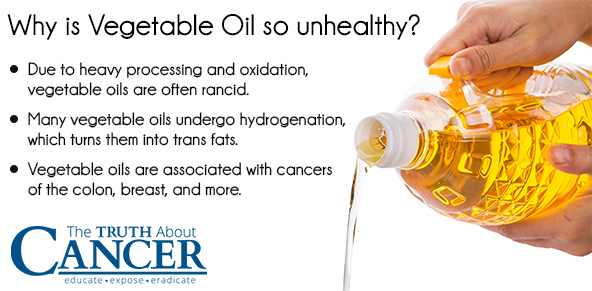 Have you wondered why nutritionists say “Be careful about using oxidative vegetable oils on the grocery shelf? It is because all oils on the grocery shelf except extra virgin olive oil have been boiled to over 300 degrees Fahrenheit EXCEPT COCONUT OIL, PALM OIL, BUTTER, RAW LARD, AND SUET. These omega-6 Cooked oils on the grocery shelf not only have no electromagnetic value, but they are prone to oxidation, which means they are oxidative instead of being an anti-oxidant and have no electromagnetic health value. Some nutritionists call them “dead” oils. They may cause serious health problems if used in deep-fried meat, beans, and other vegetables, plus even worse if combined with sugar products in the diet. Continue reading
Have you wondered why nutritionists say “Be careful about using oxidative vegetable oils on the grocery shelf? It is because all oils on the grocery shelf except extra virgin olive oil have been boiled to over 300 degrees Fahrenheit EXCEPT COCONUT OIL, PALM OIL, BUTTER, RAW LARD, AND SUET. These omega-6 Cooked oils on the grocery shelf not only have no electromagnetic value, but they are prone to oxidation, which means they are oxidative instead of being an anti-oxidant and have no electromagnetic health value. Some nutritionists call them “dead” oils. They may cause serious health problems if used in deep-fried meat, beans, and other vegetables, plus even worse if combined with sugar products in the diet. Continue reading
Category Archives: Dr. Kelley’s Kitchen
June 1, 2023: Your Health ~ YOUR Choice!
New Study Is Extremely Embarrassing for Lab-Grown Meat
 Researchers at UC Davis have made a startling discovery that could change the way we view lab-grown meat.
Researchers at UC Davis have made a startling discovery that could change the way we view lab-grown meat.
As detailed in a yet-to-be-peer-reviewed paper, they found that the meat alternative’s environmental impact appears to be “orders of magnitude” higher than retail beef you can buy at the grocery store — itself already a very environmentally damaging foodstuff — at least based on current production methods.
If confirmed, the research could be damning: lab-grown meat, long seen as a greener alternative to meat products that don’t involve the slaughter of animals, could be more harmful to the environment than the products it’s trying to replace
“It’s not a panacea“… (Continue to full article)
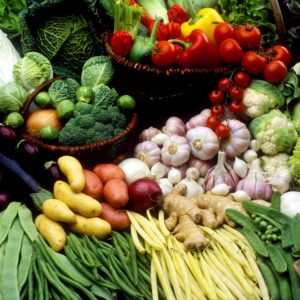 9 Healthiest Vegetables to Eat
9 Healthiest Vegetables to Eat
We all know veggies are healthy, but which ones are the healthiest to include in your daily diet?
“All vegetables offer health-promoting properties and compounds that reduce risk of disease, however, some vegetables are more nutrient-dense and functional than others, and I encourage people to include [those] in their eating plan every day.
Ready to fill up on veggies? Here are some of the healthiest vegetables to eat everyday… (Continue to full article)
Why Butter Is Better
 When the fabricated food folks and apologists for the corporate farm realized that they couldn’t block America’s growing interest in diet and nutrition, a movement that would ultimately put an end to America’s biggest and most monopolistic industries, they infiltrated the movement and put a few sinister twists on information going out to the public.
When the fabricated food folks and apologists for the corporate farm realized that they couldn’t block America’s growing interest in diet and nutrition, a movement that would ultimately put an end to America’s biggest and most monopolistic industries, they infiltrated the movement and put a few sinister twists on information going out to the public.
Item number one in the disinformation campaign was the assertion that naturally saturated fats from animal sources are the root cause of the current heart disease and cancer plague. Butter bore the brunt of the attack, and was accused of terrible crimes. The Diet Dictocrats told us that it was better to switch to polyunsaturated margarine and most Americans did. Butter all but disappeared from our tables, shunned as a miscreant.
This would come as a surprise to many people around the globe who have valued butter for its life-sustaining properties for millennia… (Continue to full article)
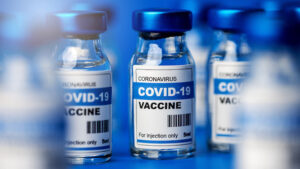 Covid vaccines – A colossal failure around the world
Covid vaccines – A colossal failure around the world
The COVID vaccines – and the new bivalents, of which they are a part – are alarmingly and irredeemably unsafe, as well as ineffective for the advertised purposes. It is increasingly recognized by laypeople, physicians and scientists throughout the world that the COVID-19 vaccines are neither safe nor effective nor reversible. In this article, I show irrefutable proof that the COVID vaccines are irredeemably ineffective. (See many dozens of my other Substack articles, and my book Neither Safe Nor Effective, on how dangerous these vaccines are.)
Background – US mortality data at the end of 2020 did not support the allegation of a pandemic, because there was no more of an outlying peak in excess deaths in 2020 than other peaks throughout the past two decades, as reported at that time. A series of CDC revisions have continually increased the number claimed dead in 2020. Even now, as of 4/24/23, the CDC shows that 3,383,729 people died from all causes in the US in 2020 on one page written in December 2021.
If even two years after the end of 2020, allegations of the number of those dead in 2020 continued to increase, at what point will that number be settled? How is it that by December 2021 an accurate number of deaths in 2020 was not available to the CDC? …and it is now half-way through 2023… (Continue to full article)
Men should eat walnuts to prevent prostate cancer
 Good news, gentlemen: Eating walnuts can help stave off prostate cancer.
Good news, gentlemen: Eating walnuts can help stave off prostate cancer.
This is according to researchers from the University of California, Davis, who found that walnuts, aside from helping to reduce excess cholesterol and increasing insulin sensitivity, are also capable of reducing the levels of a protein associated with prostate cancer.
According to nutritionist Paul Davis, who acted as the study’s lead researcher, their findings provide additional evidence that walnuts, despite being high in fats, are actually a great addition to a healthy diet
Compounds in walnuts affect the expression of prostate cancer-related genes… (Continue to full article)
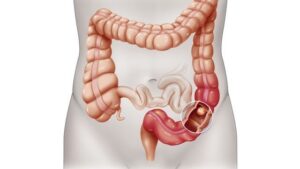 Gut microbiota may affect the anti-cancer activity of this oriental herb against colorectal cancer
Gut microbiota may affect the anti-cancer activity of this oriental herb against colorectal cancer
Oplopanax elatus, commonly known as nakai, is an herb native to northern China that is known for its anti-cancer effects, especially against colorectal cancer (CRC). But questions remain on whether or not the human gut microbiota interferes with nakai’s anti-CRC effects
Finding out if the gut microbiota does affect the anti-CRC effects of molecules from O. elatus is important. Doing so allows doctors and scientists to better understand how to better use the herb in the treatment of CRC.
To test this, the researchers analyzed both compounds in the PEFO as well as PEFO incubated with human gut microbiota for 72 hours (PEFO I) using high-performance liquid chromatography with diode-array detection quadrupole time of flight mass spectrometer (HPLC-DAD-QTOF-MS) method validation… (Continue to full article)
TURBO CANCER: Children are DYING within hours or days of leukemia diagnosis, often after receiving vaccine jabs
 Children and young adults are dying within hours or days after being diagnosed with leukemia. Some say the Wuhan coronavirus (COVID-19) vaccines have something to do with these untimely deaths.
Children and young adults are dying within hours or days after being diagnosed with leukemia. Some say the Wuhan coronavirus (COVID-19) vaccines have something to do with these untimely deaths.
Data suggests that COVID-19 mRNA vaccines deliver lipid nanoparticles (LNPs) with mRNA to the bone marrow. What does this have to do with these cases?
Leukemia is a broad term for cancers of the body’s blood-forming tissues, including the bone marrow and the lymphatic system. Leukemia usually involves white blood cells. In patients with leukemia, their bone marrow produces an excessive amount of abnormal white blood cells, which don’t function properly… (Continue to full article)
May 29, 2023: Your Health ~ YOUR Choice!
Reports reveal the risk for strokes is on the rise in young adults
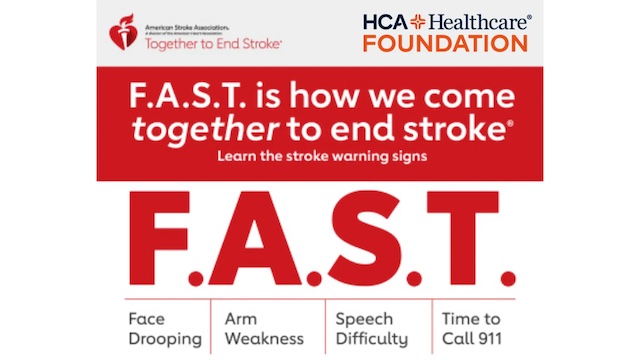 May is National Stroke Awareness Month, and along with education on strokes, doctors are looking for answers to why strokes are happening in younger patients.
May is National Stroke Awareness Month, and along with education on strokes, doctors are looking for answers to why strokes are happening in younger patients.
The American Stroke Association reports more strokes in adults under 50. One Houston doctor says he isn’t sure exactly why this is happening, but thinks our changes in lifestyles could be an answer.
“Researchers have studied the obesity, diabetes, high blood pressure, high cholesterol, cholesterol of younger people now, and the prevalence is going up.”
Dr. El-Ghanem also suggests neglecting healthcare or regular doctors visits during the pandemic could also be a reason that we’re seeing strokes in younger people, more often… (Continue to full article)
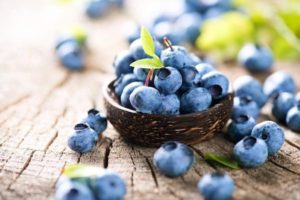 Precision nutrition and the gut microbiome: the impact of blueberries
Precision nutrition and the gut microbiome: the impact of blueberries
In a recent study published in the Antioxidants journal, researchers explored the impacts of precision nutrition on gut microbiome variation.
Nutrition research funding is increasingly focused on precision nutrition, which has recently gained significant interest. Consuming fruits and vegetables is linked to a lower risk of developing chronic diseases such as obesity, cardiovascular disease, diabetes, and neurocognitive diseases.
Berry fruits, tea, and cocoa contain (poly)phenolic compounds identified as having potential health benefits among the thousands of phytochemicals studied… (Continue to full article)
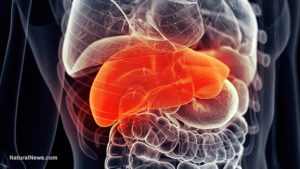 How does liver cancer affect the skin?
How does liver cancer affect the skin?
Liver cancer can destroy liver cells and block connections between the liver and other organs. As a result, liver cancer may prevent the liver from processing a substance called bilirubin. This causes a buildup of bilirubin within the blood, leading to jaundice.
This article looks at how liver cancer affects the skin. It will explain the connection between liver cancer and jaundice. It will also detail the relationship between jaundice and liver cancer stages, other liver cancer symptoms, and when to contact a doctor… (Continue to full article)
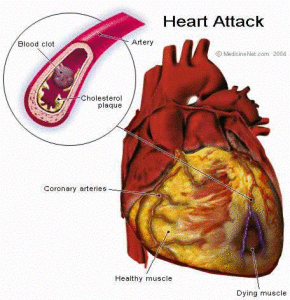 Doctors Reveal 5 Key Steps to Surviving a Heart Attack
Doctors Reveal 5 Key Steps to Surviving a Heart Attack
Be prepared. Here’s what to do if you or a loved one is having a heart attack.
Someone has a heart attack every 40 seconds in the U.S., according to the Centers for Disease Control and Prevention, making it a leading cause of death for Americans. Knowing what to do when one happens is essential. There are steps you can take to improve the chances of survival and potentially save a life when the unthinkable happens.
When you think “heart attack,” classic symptoms such as chest discomfort might first come to mind. But heart attacks can present differently in men and women, and in people with certain diseases, like diabetes… (Continue to full article)
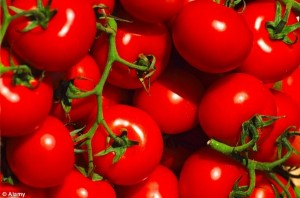 Healthy Food Alert #6: What Most People Don’t Know About Tomato
Healthy Food Alert #6: What Most People Don’t Know About Tomato
Tomatoes, also known as Solanum lycopersicum, are a popular fruit and a key ingredient in many dishes around the world.
They are rich in vitamins, minerals, and antioxidants that are essential for maintaining good health. Recent studies have shown that tomatoes can also help fight cancer and protect the heart.
The various health benefits of tomatoes and how they can be incorporated into your diet and how they can protect and boost your heart and help fight cancer and even other diseases.
Let’s start with how it fight cancer!… (Continue to full article)

As pictured above, having no energy, unintentionally losing weight, constant indigestion, difficulty swallowing, feeling sick and a lump at the top of your tummy are all warning signs and symptoms of stomach cancer
What are stage 1 stomach cancer symptoms?
Doctors use a staging system to describe the severity and spread of stomach cancer, with stage 1 being the earliest stage. Symptoms of stage 1 stomach cancer may include abdominal discomfort, indigestion, nausea, and bloating.
At this stage, doctors typically recommend treatment with surgery to remove all or part of the stomach. They may follow this with chemotherapy to kill any remaining cancer cells.
Because early detection is crucial when treating cancer, anyone with stomach cancer symptoms should seek medical attention as soon as possible. With prompt treatment, doctors can often successfully manage stage 1 stomach cancer… (Continue to full article)
WHO Advises Not to Use Non-Sugar Sweeteners for Weight Control
 The World Health Organization (WHO) has released a new guideline on non-sugar sweeteners (NSS), which recommends against the use of NSS to control body weight or reduce the risk of noncommunicable diseases (NCDs).
The World Health Organization (WHO) has released a new guideline on non-sugar sweeteners (NSS), which recommends against the use of NSS to control body weight or reduce the risk of noncommunicable diseases (NCDs).
The recommendation is based on the findings of a systematic review of the available evidence which suggests that use of NSS does not confer any long-term benefit in reducing body fat in adults or children. Results of the review also suggest that there may be potential undesirable effects from long-term use of NSS, such as an increased risk of type 2 diabetes, cardiovascular diseases, and mortality in adults. Continue reading
Our Bodies Respond Differently to Food…
A new study aims to find out how…

Genetics, gut microbes and other lifestyle and environmental factors can impact how people’s bodies react to food. An NIH study aims to find out how. Stephen Chernin/Getty Images
There’s plenty of one-size-fits-all nutrition advice. But there’s mounting evidence that people respond differently to food, given differences in biology, lifestyle and gut microbiomes.
The National Institutes of Health wants to learn more about these individual responses through a Nutrition for Precision Health study, and this week researchers began enrolling participants to take part in the study at 14 sites across the U.S.
It’s part of the All of Us research initiative that aims to use data from a million participants to understand how differences in our biology, lifestyle and environment can affect our health. Continue reading
Plants against cancer: Eighteen 100% natural phytochemicals that prevent and treat cancers
 Cancer chemoprevention with natural phytochemical compounds is an emerging strategy to prevent, impede, delay or cure cancer. Below are 18 phytochemicals, or compounds, produced by plants that scientists believe can protect cells from damage that could lead to cancer, as studied in the research article published in Anti-cancer Agents in Medical Chemistry. Continue reading
Cancer chemoprevention with natural phytochemical compounds is an emerging strategy to prevent, impede, delay or cure cancer. Below are 18 phytochemicals, or compounds, produced by plants that scientists believe can protect cells from damage that could lead to cancer, as studied in the research article published in Anti-cancer Agents in Medical Chemistry. Continue reading
04.26.23 ~ Dr. Kelley’s Kitchen
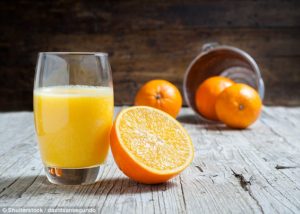 What Happens to Your Body When You Drink Juice Every Day
What Happens to Your Body When You Drink Juice Every Day
There’s no denying that juice is tasty. But is this beloved beverage doing more harm to your health than good? A registered dietitian weighs in.
Juice is a delicious and refreshing beverage whether you prefer it fresh-squeezed or straight out of the carton. But is a daily cup of juice good for you? Fruit juices are often considered less healthy than their whole-food counterparts due to higher sugar concentration, more calories and less fiber—which can reduce the satiety of these beverages and, over time, could contribute to weight gain and obesity.
However, other research suggests regular juice consumption may offer some health benefits and can be included in a nutritious diet. Confusing, right? … (Continue to full article)
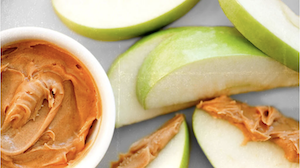
Jamie Grill/Getty Images
Cholesterol-lowering recipes: Nutritional profiles and health benefits
High cholesterol levels in the blood increase the risk of heart disease. A person can take steps to lower their cholesterol naturally. These include incorporating low sugar and low cholesterol meals into a well-balanced, nutritious diet.
A person’s diet can affect their cholesterol levels. By making some changes to what they eat, a person can help lower their cholesterol levels, particularly when they combine these dietary choices with other lifestyle adjustments and medications.
This article discusses some of the negative effects of cholesterol and provides some recipes that may help with lowering cholesterol… (Continue to full article)
 The Best Fruit for Your Gut Health, According to a Gastroenterologist
The Best Fruit for Your Gut Health, According to a Gastroenterologist
Although we’re supposed to shoot for 25 to 38 grams of fiber per day, a recommendation based on our total calorie consumption, the average American only actually consumes about 10 to 15 grams per day, Harvard Medical School experts report.
And while it might seem more pressing to keep an eye on protein levels – or whatever appears to be the “hot” macronutrient of the moment – or try some other trendy diet, making an effort to eat enough fiber is never going out of style. That’s because the health benefits of fiber suggest that it can have a beneficial impact on our gut health, digestion, bone strength, weight, risk for several chronic diseases and even our longevity.
We’re not talking about suffering through glasses of water mixed with a chalky fiber supplement, though. You can score your daily dose from a wide variety of high-fiber foods… (Continue to full article)
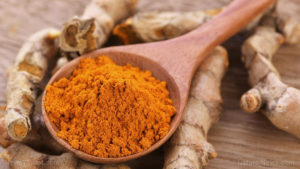 Should You Take Turmeric Supplements?
Should You Take Turmeric Supplements?
Turmeric is touted as a “cure-all” spice that can do everything from healing your gut, boosting memory, and reducing inflammation. But studies on the health benefits of this golden root have yielded mixed results.
A small study in 2017 found that curcumin – the active ingredient in turmeric—may improve memory and attention, while a larger randomized controlled trial in 2018 found that curcumin had no impact on reducing inflammation following aortic aneurysm repair surgery.
Zhaoping Li, MD, PhD, a professor of medicine at the University of California, Los Angeles, and co-author of the 2017 study, said curcumin “definitely has an anti-inflammatory effect.” However, it’s most effective when it’s used for preventative purposes or to suppress low levels of inflammation associated with chronic disease… (Continue to full article)
 Bicarbonate Proves to be Cheapest Fastest Safest COVID Treatment
Bicarbonate Proves to be Cheapest Fastest Safest COVID Treatment
One does not have to be an anti-vaxxer to see and understand that COVID vaccines are not needed. They are not required legally or for any medical or public health reason to treat or prevent COVID-19. There is a broad range of both natural and pharmaceutical treatments widely available, many already proven to be very useful.
Now comes some excellent news for the human race. There is an official study in Acre, Brazil that has doctors amazed at how fast COVID infected patients got better after nebulizing with 3 grams of sodium bicarbonate (widely available baking soda) in 100 ml of water administered in a nebulizer.
However, the bad news is that there are powerful forces, which we will discuss below, that hate good news and will do everything in their power to censor useful medical information… (Continue to full article)
Lesser-Known Spices for Natural Cancer Prevention and Treatment!
Since ancient times, spices have been used to prevent and treat many diseases. There are many spices known to cure many incurable diseases. There have been voyagers, including Christopher Columbus, who explored the globe searching for treasured spices.
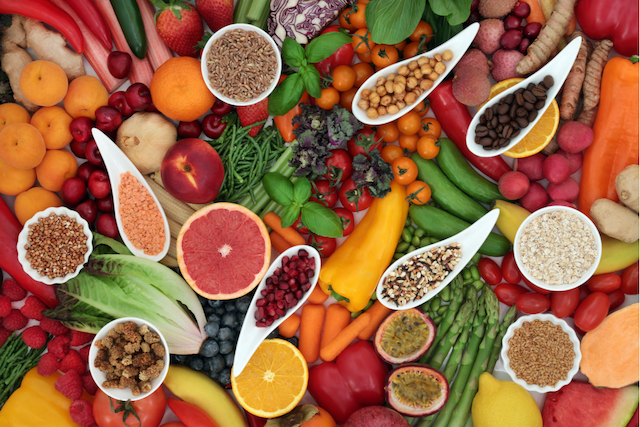 Many documented studies prove that more than adding flavors, these valued commodities are revered for their potential health benefits. The antioxidant properties and the biological effects arise from spice’s ability to induce changes in cellular processes. This includes those involved with cell division, drug metabolism, differentiation, apoptosis, and immunocompetence.
Many documented studies prove that more than adding flavors, these valued commodities are revered for their potential health benefits. The antioxidant properties and the biological effects arise from spice’s ability to induce changes in cellular processes. This includes those involved with cell division, drug metabolism, differentiation, apoptosis, and immunocompetence.
Some researchers suggest that spices may be a key to determining the balance between pro-and anticancer factors that regulate risk and tumor behavior. Recently, a rise has been noted in household use of spices, and about 75% of people in the U.S. believe this dietary approach reduces the risk of diseases, including cancer … (Continue to full article)
Are These Cancer-Causing Foods in Your Diet?
 Cancer is a systemic disease with various causes, some of which include a poor diet, toxin exposure, nutrient deficiencies and to some extent genetics. One extremely important way to prevent and/or treat cancer is nutritionally, through eating a nutrient-dense diet and avoiding things that are known to increase cancer risk.
Cancer is a systemic disease with various causes, some of which include a poor diet, toxin exposure, nutrient deficiencies and to some extent genetics. One extremely important way to prevent and/or treat cancer is nutritionally, through eating a nutrient-dense diet and avoiding things that are known to increase cancer risk.
But for many people navigating the modern-day food system often seems overwhelming. Ingredients in ultra-processed foods are being blamed for everything health-related, from cancer and diabetes, to reduced kidney function and bone loss. Only adding to the confusion, sometimes even the way we cook otherwise-healthy foods puts them in the cancer-causing foods category. Continue reading
February 4, 2023: Your Health – YOUR Choice!
Ultraprocessed foods linked to ovarian and other cancer deaths
Eating more ultraprocessed foods raises the risk of developing and dying from cancer, especially ovarian cancer, according to a new study of over 197,000 people in the United Kingdom, over half of whom were women.

Hot dogs qualify as an ultra-processed food, since they’re packed with preservatives. zz/Dennis Van Tine/STAR MAX/IPx 2018 via AP Images
Overly processed foods include prepackaged soups, sauces, frozen pizza and ready-to-eat meals, as well as hot dogs, sausages, french fries, sodas, store-bought cookies, cakes, candies, doughnuts, ice cream and many more.
“Ultra-processed foods are produced with industrially derived ingredients and often use food additives to adjust colour, flavour, consistency, texture, or extend shelf life… (Continue to full article)
 Which of your memory lapses are perfectly normal and which are signs of dementia?
Which of your memory lapses are perfectly normal and which are signs of dementia?
Forgetting is usually looked upon as a personal failure. If we try to remember an item of information and can’t come up with it, we blame ourselves. Forgetfulness is especially worrying to us because of the fear that our memory failures may be the result of a degenerative brain disease such as Alzheimer’s.
It’s an understandable fear. Our memories — the facts we know and the events we can recall from our past — form the basis of our identity. The novelist Stephen King was spot on when he wrote: ‘A person’s memory is everything. Memory is identity. It’s you.’
Since who we are is rooted in our experiences, the more we can remember, the richer our sense of ourselves… (Continue to full article)
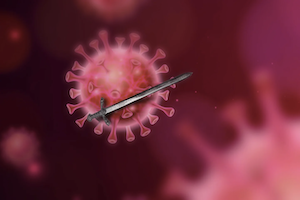 What Is COVID Actually Doing to Our Immune Systems?
What Is COVID Actually Doing to Our Immune Systems?
When the immune system goes awry, it’s bad news. A wonky immune system might mean that you’re more likely to catch colds and flus, or be infected by other pathogens—and less likely to shake them off. It might mean that your body fails to detect and destroy growing tumors. It might even mean that the body turns against itself, leading to chronic autoimmune conditions like arthritis or Crohn’s disease.
The fallout of immune system dysfunction on the human body is widespread and unpredictable—which is why it was so concerning in 2020 when evidence began to amass that COVID-19 seemed to be disrupting human immunology. So much so, in fact, that John Wherry, director of the Penn Medicine Immune Health Institute, summed it up this way to Kaiser Health News: “COVID is deranging the immune system.”… (Continue to full article)
 WARNING: Manufacturer recalls eye drops linked to one death and vision loss in an outbreak across 12 states
WARNING: Manufacturer recalls eye drops linked to one death and vision loss in an outbreak across 12 states
An India-based manufacturer recalled its brand name EzriCare artificial tears on Thursday after the Centers for Disease Control and Prevention said the eye drops could be contaminated with a drug-resistant bacterium.
The CDC warned people to stop using the eyedrops last month and said the recommendation was a precaution after it received reports of “permanent vision loss” resulting from eye infections and one person died from a bloodstream infection. It said the people had tested positive for a multi-drug-resistant bacterium.
Global Pharma Healthcare, which makes the Artificial Tears lubricant eye drops, announced the voluntary recall of the eyedrops on Thursday. The product was distributed throughout the United States… (Continue to full article)
 Ideal blood pressure may remodel brain clearance pathways linked to brain health, dementia
Ideal blood pressure may remodel brain clearance pathways linked to brain health, dementia
Among people who received more intensive treatment for high blood pressure, evaluations of MRI scans indicated a positive change in brain structures involved in its ability to clear toxins and other byproducts, according to preliminary research to be presented at the American Stroke Association’s International Stroke Conference 2023. The meeting, held in person in Dallas and virtually, Feb. 8-10, 2023, is a world premier meeting for researchers and clinicians dedicated to the science of stroke and brain health.
The study is the first to examine whether intensive blood pressure treatment may slow, or reverse structural changes related to the volume of the brain’s perivascular spaces, areas of the brain around the blood vessels that are involved in the clearance of toxins and other byproducts. These areas tend to enlarge as people get older or have more cardiovascular risk factors.
“If the brain cannot properly clear toxins and metabolic byproducts, they will accumulate and may contribute to the development of dementia”… (Continue to full article)
 How To Turn Your Brain Off At Night, According To A Sleep Psychologist
How To Turn Your Brain Off At Night, According To A Sleep Psychologist
If you’re like most people, you’ve been affected by stress-related sleep problems at some point or another, lying awake at night filled with anxiety about your career and the future. You may feel exhausted during the day but wired at night, desperate to shut off your racing mind so you can finally rest.
It may be hard to believe, but your brain wants (and knows how) to sleep well. You simply need to reset your relationship with sleep, so that instead of it feeling like a battle or a chore, it becomes the easy and enjoyable experience it should be.
That’s where Dr. Jade Wu comes in. As a board-certified behavioral sleep medicine specialist, she’s on a mission to help the 25 million Americans who struggle to fall asleep or stay asleep find rest at last… (Continue to full article)
Men can reduce risk of bowel cancer by 20% if they stick to diet high in veg and beans
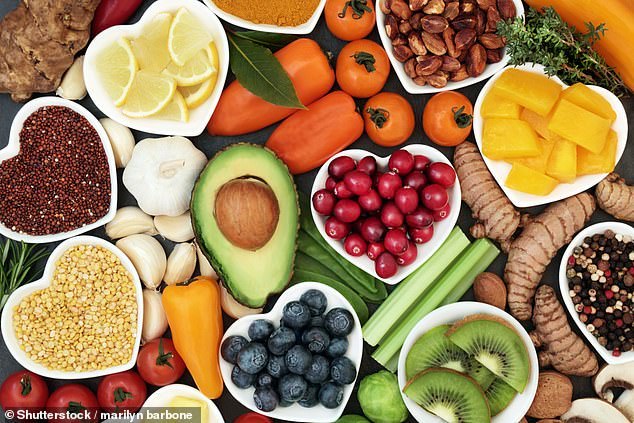 Men who eat a diet rich in vegetables, whole grains, beans and lentils can cut their risk of bowel cancer by more than a fifth, a study has found.
Men who eat a diet rich in vegetables, whole grains, beans and lentils can cut their risk of bowel cancer by more than a fifth, a study has found.
Women were also included in the research but no link between eating lots of plant foods and lower cancer risk was uncovered, which the scientists put down to men having an overall higher risk of the illness. Continue reading
Battling cancer and preventing cancer recurrence with cruciferous vegetables
 Cruciferous vegetables may hold the key to stopping the progression and recurrence of cancer. Researchers at South Dakota State University (SDState) reported that a compound from cruciferous vegetables called phenethyl isothiocyanate (PEITC) can halt tumor formation and metastasis in mice bearing transplanted cancer stem cells (CSCs). PEITC can also stop the proliferation of cultured CSCs, which are heavily implicated in tumor recurrence. These findings suggest that PEITC could greatly benefit cancer patients and survivors. Continue reading
Cruciferous vegetables may hold the key to stopping the progression and recurrence of cancer. Researchers at South Dakota State University (SDState) reported that a compound from cruciferous vegetables called phenethyl isothiocyanate (PEITC) can halt tumor formation and metastasis in mice bearing transplanted cancer stem cells (CSCs). PEITC can also stop the proliferation of cultured CSCs, which are heavily implicated in tumor recurrence. These findings suggest that PEITC could greatly benefit cancer patients and survivors. Continue reading
13 Health Benefits of Green Tea
 What is special about green tea? If you have asked such questions, you’re in the right place for answers.
What is special about green tea? If you have asked such questions, you’re in the right place for answers.
China boasts the largest green tea consumers in the world. Next on the list is Japan. The Chinese account for 50% of the world’s total green tea consumption. So you can guess how valuable the beverage is.
Green tea’s incredible therapeutic value is the reason for its high demand in China, Japan, and the rest of the world.
Green tea can prevent several deadly diseases. Increased green tea consumption has also been linked to the Japanese long life expectancy. Furthermore, this beverage contains tons of bioactive ingredients, which have numerous health benefits. Continue reading
PART 2: Eating Two cups of Fruits and three cups of Vegetables Every Day?
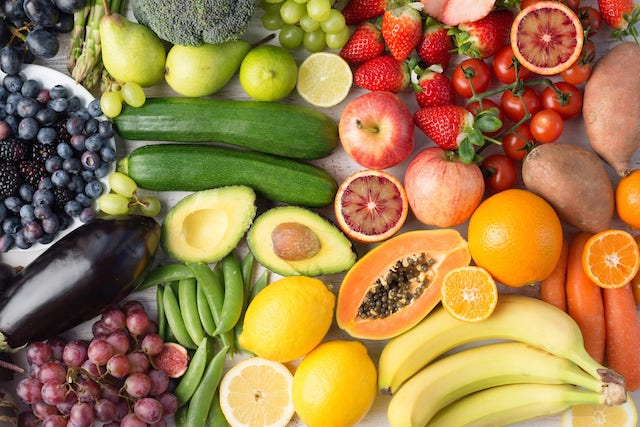 Today’s post continues with the 14 Foods that are recommended with the weekly list of electromagnetic alkaline live fresh and lightly cooked food that is recommended for each week. These foods keep your body cells, blood, immune system, energy, and health operating on all sixteen cylinders. In the last post, I did not mention seven other physicians who have reversed heart disease, diabetes, and many other diseases with this new scientifically proven electromagnetic diet. If you, your relatives, neighbors, or friends are interested in staying healthy, then following these three nutritionists and seven physicians on GOOGLE would be of great benefit. The Seven physicians are Drs. Caldwell Emerson, Neil Bernard, John McDougal, Colin Campbell, Michael Klapper, Dean Ornish, and Dr. Alan hammer. Continue reading
Today’s post continues with the 14 Foods that are recommended with the weekly list of electromagnetic alkaline live fresh and lightly cooked food that is recommended for each week. These foods keep your body cells, blood, immune system, energy, and health operating on all sixteen cylinders. In the last post, I did not mention seven other physicians who have reversed heart disease, diabetes, and many other diseases with this new scientifically proven electromagnetic diet. If you, your relatives, neighbors, or friends are interested in staying healthy, then following these three nutritionists and seven physicians on GOOGLE would be of great benefit. The Seven physicians are Drs. Caldwell Emerson, Neil Bernard, John McDougal, Colin Campbell, Michael Klapper, Dean Ornish, and Dr. Alan hammer. Continue reading
Loudon: Eating Two cups of fruit and Three cups of Vegetables Every Day?
 Are you eating two cups of RAW or lightly cooked fruit and three cups of RAW or lightly cooked vegetables every day? That is what three different nutritionists are prescribing. Continue reading
Are you eating two cups of RAW or lightly cooked fruit and three cups of RAW or lightly cooked vegetables every day? That is what three different nutritionists are prescribing. Continue reading
What Does Turmeric, Cottage Cheese, and Garlic do for Your Body?

Foods from the ‘alkaline’ side include fresh seasonal fruit
A good alkaline live food diet will produce great microorganisms in our small intestines. They secrete all sorts of chemicals needed for a healthy alert mind and body. New studies have found that the gut microbiomes work both with the neural pathways in the brain and body. They enhance the mental acuity of the neurons, axons, and dendrites. This has brought out another way that some scientists refer to intestinal bacteria as “the second brain.” Did you know that serotonin (a hormone that makes people feel good) is produced in the gut microbiome, not in the brain?
On the other hand, a bad diet of excess sugar, sugar derivatives, omega-6 oils bought on the grocery shelves, white flour products, preservatives, and refined and processed foods produce very bad gut toxins and inflammation of the gut walls that cause havoc to your brain and body health. Continue reading
